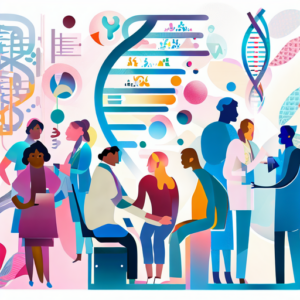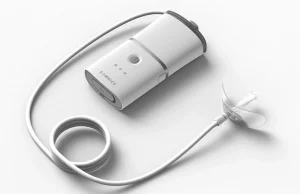
Navigating the Hurdles of Sleep Disorders: The Challenges of Obtaining an Accurate Diagnosis
Sleep is an essential component of a healthy lifestyle, playing a vital role in our physical and mental well-being. However, many individuals suffer from sleep disorders that severely disturb natural sleep patters leading to a cascade of negative effects on their daily lives. Surprisingly, sleep disorders are frequently misdiagnosed, leading to prolonged suffering and a delay in effective treatment. In this blog post, we will explore the reasons behind the misdiagnosis of sleep disorders and shed light on this often overlooked issue.
According to recent studies, the prevalence of sleep disorders and their misdiagnosis is a cause for concern. A systematic review conducted by researchers from the University of Pennsylvania found that up to 70 million people in the United States alone suffer from sleep disorders, with the majority remaining undiagnosed or misdiagnosed (Source: Sleep Medicine Reviews, 2019).
Let's explore the reasons behind the misdiagnosis of sleep disorders and shed light on this often-overlooked issue.
Lack of Awareness and Understanding
Sleep disorders encompass a broad range of conditions, including insomnia, sleep apnea, restless leg syndrome, and narcolepsy, among others. Unfortunately, the lack of awareness and understanding among healthcare professionals about the complexities of these disorders contributes to their misdiagnosis. It is crucial for medical practitioners to receive comprehensive training on sleep disorders, enabling them to recognize and accurately diagnose these conditions.
Symptom Overlap with Other Health Issues
Sleep disorders often exhibit symptoms that can overlap with various other medical and psychiatric conditions. For instance, symptoms such as fatigue, difficulty concentrating, and mood disturbances can be attributed to factors like depression, anxiety, or even hormonal imbalances. This symptom overlap poses a significant challenge for healthcare providers in differentiating between primary sleep disorders and other underlying conditions, leading to misdiagnoses.
Inadequate Sleep Evaluation Techniques
Diagnosing sleep disorders requires specialized evaluation techniques such as polysomnography (PSG), multiple sleep latency tests (MSLT), and actigraphy. However, the availability and accessibility of these diagnostic tools may be limited, especially in certain healthcare settings. As a result, healthcare providers may rely on subjective reports from patients rather than objective measurements, increasing the chances of misdiagnosis.
Misunderstanding of Sleep Patterns
Sleep patterns can vary greatly among individuals, making it challenging to differentiate between normal variations and abnormal sleep patterns indicative of a sleep disorder. Additionally, cultural and societal factors may influence an individual’s perception of what constitutes “normal” sleep, further complicating the diagnosis process. The misinterpretation of sleep patterns can lead to an incorrect diagnosis or the dismissal of a genuine sleep disorder.
Stigma Associated with Sleep Disorders
Unfortunately, sleep disorders often carry a certain level of stigma. Some individuals may feel embarrassed or ashamed to discuss their sleep problems openly, fearing judgment or societal misconceptions. This stigma can discourage people from seeking appropriate medical attention, leading to a lack of diagnosis or misdiagnosis. Addressing the stigma surrounding sleep disorders is crucial to ensure accurate diagnoses and effective treatment.
Lack of Collaboration and Communication Among Healthcare Professionals
Sleep disorders often require a multidisciplinary approach for accurate diagnosis and treatment. However, the fragmented nature of healthcare systems and limited communication between healthcare professionals can contribute to the misdiagnosis of sleep disorders. For example, a study published in the Journal of Clinical Sleep Medicine highlighted that primary care physicians often lack the necessary knowledge and resources to effectively diagnose and manage sleep disorders, leading to misdiagnosis or delayed diagnosis (Source: Journal of Clinical Sleep Medicine, 2019). Improved collaboration and communication among healthcare professionals, including sleep specialists, primary care physicians, and mental health professionals, can enhance diagnostic accuracy and improve patient outcomes.
Limited Patient Education and Self-Awareness
Many individuals may not be aware of the signs and symptoms of sleep disorders, leading to a delay in seeking medical attention or a misinterpretation of their symptoms. Inadequate patient education and self-awareness about sleep disorders can contribute to misdiagnosis. A study published in the Journal of Sleep Research emphasized the importance of public education campaigns and initiatives to increase awareness about sleep disorders and encourage individuals to seek appropriate medical evaluation (Source: Journal of Sleep Research, 2021). Empowering individuals with knowledge about sleep disorders can facilitate early detection and accurate diagnosis.
Sleep disorders can significantly impact an individual’s quality of life, affecting their physical health, mental well-being, and overall productivity. However, the misdiagnosis of sleep disorders remains a prevalent issue, leading to prolonged suffering and inadequate treatment. By increasing awareness, enhancing healthcare professionals’ training, and improving access to diagnostic tools, we can overcome the barriers that contribute to misdiagnosis. Recognizing the complex nature of sleep disorders and the various factors that contribute to their misdiagnosis is the first step toward ensuring accurate diagnoses and facilitating better sleep health for all.




